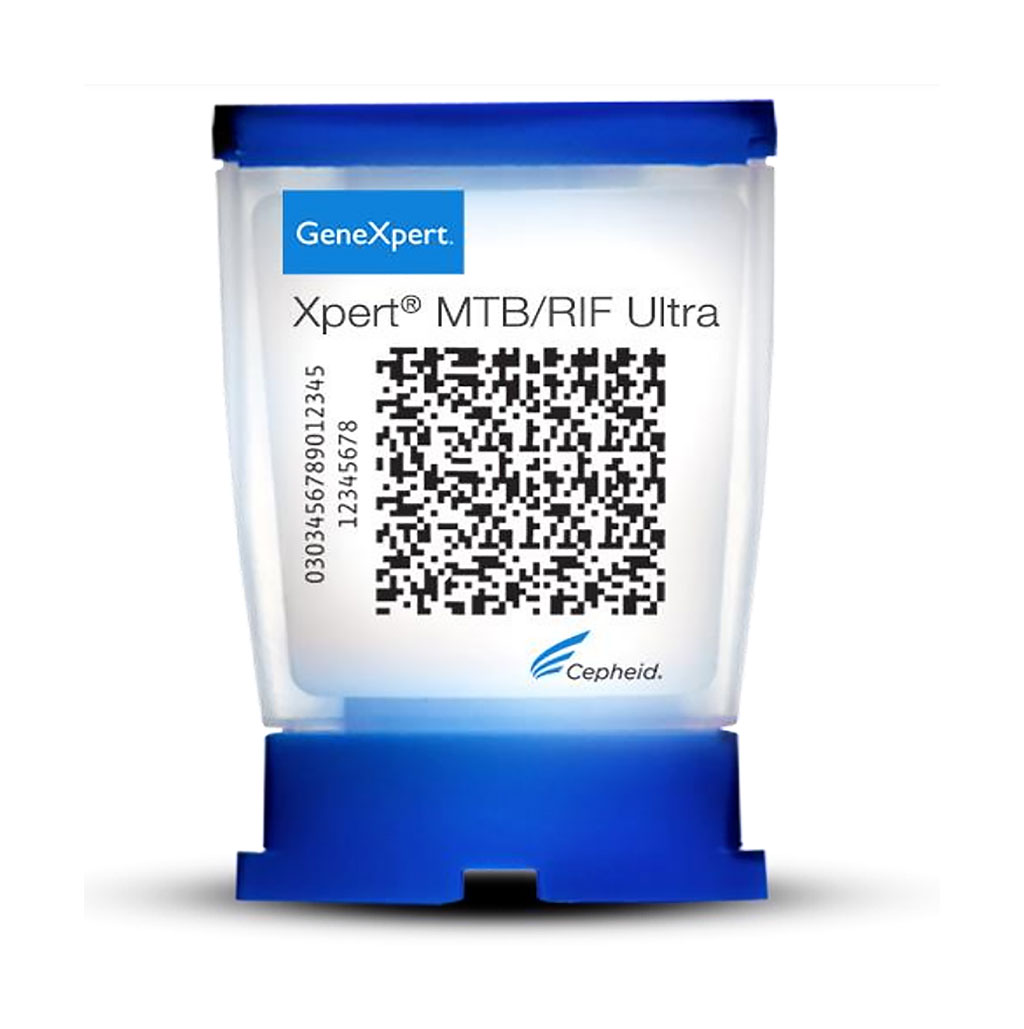Highly Sensitive Molecular Test Detects Cases of Tuberculosis
By LabMedica International staff writers
Posted on 28 Jun 2021
Tuberculosis (TB) is a bacterial infection spread through inhaling tiny droplets from the coughs or sneezes of an infected person. It mainly affects the lungs, but it can affect any part of the body, including the tummy (abdomen), glands, bones and nervous system.Posted on 28 Jun 2021
Tuberculosis (TB) is an infectious disease usually caused by Mycobacterium tuberculosis (MTB) bacteria. Most infections show no symptoms, in which case it is known as latent tuberculosis. About 10% of latent infections progress to active disease which, if left untreated, kills about half of those affected. Typical symptoms of active TB are a chronic cough with blood-containing mucus, fever, night sweats, and weight loss.

Image: Xpert MTB/RIF Ultra assay is an automated molecular test that has improved the detection of tuberculosis and rifampicin resistance (Photo courtesy of Cepheid)
A team of Medical Scientists at the Barcelona Institute for Global Health (Barcelona, Spain) and their colleagues enrolled a total of 1,419 and 252 participants in the passive case finding (PCF) and (active case finding (ACF) cohorts. Single respiratory specimens from symptomatic adults accessing health care services PCF cohort, and from household and community close contacts ACF, were tested by smear microscopy, culture, sensitive molecular tests. Liquid and solid culture served as a composite reference standard. The team performed a field study to compare the performance of two molecular tests: 'Xpert MTB/RIF', developed in 2010, and its improved version, Xpert Ultra (Cepheid, Sunnyvale, CA, USA), developed three years ago and capable of detecting smaller amounts of DNA.
The investigators reported that for the PCF cohort, Ultra showed higher sensitivity than Xpert overall (0.95 (95% CI: 0.90, 0.98) versus 0.88 (0.82, 0.93) and among smear negative patients (0.63 (0.48, 0.76) and 0.84 (0.71, 0.93). Ultra's specificity was lower than Xpert's 0.98 (0.97, 0.99) versus 0.96 (0.95, 0.97). For ACF, sensitivities were the same (0.67 (95% CI: 0.22,0.96) for both tests), although Ultra detected a higher number of microbiologically confirmed samples than Xpert (12/252 (4.7%) versus 7/252 (2.7%). Conditional recategorization of trace results among previously treated participants maintained differences in specificity in the PCF cohort. Among the cohort of case contacts, the incidence was much lower, but even then the Ultra managed to detect cases that were not detected by Xpert or by liquid culture, likely because they had a very low burden of bacteria.
Alberto L. García-Basteiro, MD, PhD, an expert in tuberculosis and senior author of the study, said, “Most national programmes for TB control focus on detecting cases that attend the hospital, which tend to be more severe, but there are many cases with no or few symptoms that we are missing. If we want to achieve the End TB goals, we need to develop new diagnostic tools capable of identifying patients at earlier stages of the disease, with lower bacterial burdens, and that can be deployed at the patient's point of care.” The study was published on June 17, 2021 in the European Respiratory Journal.
Related Links:
Barcelona Institute for Global Health
Cepheid














